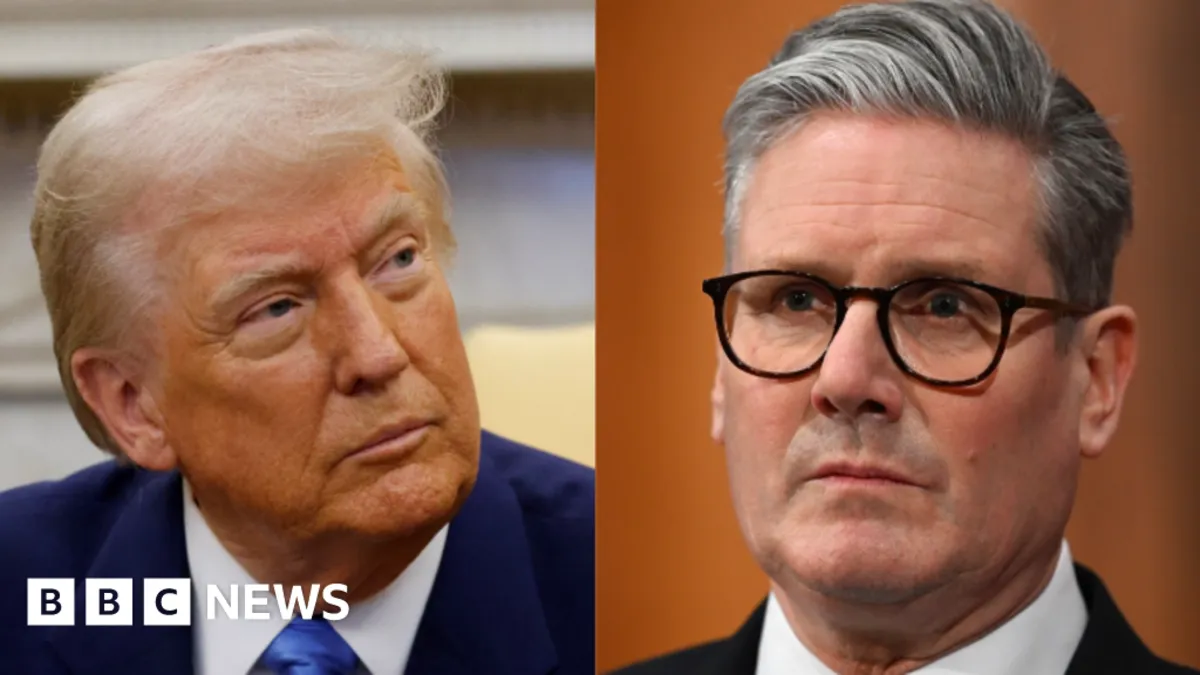
Sir Keir Starmer's recent promise to increase defence spending in the United Kingdom is set to have significant consequences. While the move could potentially bolster the UK's ability to defend itself in the long term, it will immediately result in billions less allocated to foreign aid. This decision raises questions about what the UK Prime Minister will achieve diplomatically in Washington.
Historically, visiting dignitaries would present emperors with gifts and tributes, and Starmer seems to be following suit. On Thursday, he is expected to arrive at the White House with a substantial "goodie bag" labeled as increased defence spending. This aligns with a longstanding request from US presidents, including Donald Trump, for European nations to invest more in their own defense.
Starmer aims to demonstrate to the US President that the UK has heeded this call. However, he might prefer to avoid detailed questions such as the real monetary impact of an additional 0.2% of GDP or the timeline for the UK to reach a 3% defense spending target. Nevertheless, Starmer intends to communicate that the UK is responsive to Trump's agenda.
Early indications suggest a favorable response. Peter Hegseth, the US Secretary of Defence, has expressed approval after discussions with his UK counterpart, John Healey, describing the increase as a robust step from a dependable partner. This announcement may help Starmer gain access to the White House and an audience with the President.
The critical question remains whether this move will aid Starmer in advocating for the security of Ukraine and Europe. Will Trump become more amenable to providing a seat at the negotiating table or supporting US involvement in guaranteeing post-war Ukraine's security? The answers are not straightforward. The Prime Minister might argue that the UK is setting an example for other European allies.
Starmer may also contend that the defense spending increase allows the UK to avoid choosing between Europe and the US, a predicament complicated by the US's recent UN vote alongside Russia against Ukraine and Europe.
Despite the UK's efforts, the Trump administration has made it clear that its primary security focus is China, leaving Europe to manage its own security needs. Malcolm Chalmers, deputy director of the Royal United Services Institute, noted that regardless of the UK's defense actions, the US is likely to shift its attention elsewhere, reducing its historical role in European security.
In this context, the UK's promised increase in defense spending may be viewed as a tactical maneuver before Starmer's visit to Washington, rather than a decisive response to the geopolitical changes triggered by Trump's election.
European diplomats have expressed disappointment with the UK defense offer, stating it falls short of making a significant impact. They argue that the UK needs to allocate at least 3% of its national wealth to develop the necessary capabilities.
To achieve this, the government is reducing foreign aid, drawing criticism from international charities. The reduction from 0.5% to 0.3% of national income equates to £6 billion less for foreign aid annually. Since a portion of this budget is spent on asylum seekers' accommodations in the UK, the actual overseas aid expenditure will be approximately 0.15%.
The Prime Minister stated that the remaining aid funds would be directed towards supporting Sudan, Ukraine, Gaza, climate change initiatives, and global health efforts. However, aid charities have expressed outrage. Save the Children called it a betrayal of vulnerable children worldwide, while The One Campaign warned of significant challenges in delivering essential humanitarian assistance. The aid network BOND predicted devastating consequences for millions of marginalized individuals.
This decision comes after Donald Trump froze America's development spending agency, USAID. By cutting foreign aid, the UK government has broken a manifesto commitment and damaged its strategy of using aid to strengthen ties with countries in the global south.
David Miliband, head of the International Rescue Committee and former Labour foreign secretary, described the aid cut as a blow to Britain's esteemed reputation as a global humanitarian and development leader. As the UK navigates this controversial policy shift, the long-term diplomatic and geopolitical ramifications remain to be seen.